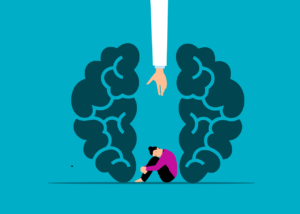Stress and anxiety are unwelcome companions in our fast-paced lives. As we navigate the challenges of work, relationships, and the uncertainties of the future, it becomes essential to develop effective strategies for managing these mental burdens. In this guide, we'll explore the nuances of stress and anxiety, identify common triggers, and delve into practical approaches to foster mental well-being.
Introduction
In a world constantly buzzing with activity, stress and anxiety have become prevalent issues affecting people of all ages. The toll these conditions take on our mental and physical health underscores the importance of adopting proactive measures to manage and alleviate them.
Understanding Stress and Anxiety
Before diving into management strategies, it's crucial to distinguish between stress and anxiety. While stress is a natural response to external pressures, anxiety often involves excessive worry about the future. Both can manifest physically and mentally, highlighting the interconnectedness of our well-being.
Common Triggers of Stress and Anxiety
Identifying the root causes of stress is the first step toward effective management. From demanding jobs to strained relationships and financial woes, understanding these triggers empowers individuals to address them head-on.
Recognizing the Signs and Symptoms
Recognizing the signs of stress and anxiety is paramount. From muscle tension to changes in behavior, our bodies and minds provide valuable cues that should not be ignored. Awareness is the initial key to intervention.
The Mind-Body Connection
Exploring the intricate relationship between mental and physical health unveils holistic approaches to stress management. By nurturing both aspects, individuals can build resilience and better cope with life's challenges.
Building a Resilient Mindset
Cultivating a resilient mindset involves adopting a positive outlook and embracing adaptability. Life is unpredictable, and developing the ability to bounce back from setbacks is crucial for long-term well-being.
Effective Time Management

Poor time management is a significant contributor to stress. Learning to prioritize tasks and avoid procrastination can significantly alleviate the burden on our shoulders.
Mindfulness and Meditation Techniques
Mindful breathing exercises and guided meditation offer powerful tools for stress relief. Incorporating these practices into daily routines enhances mental clarity and promotes a sense of calm.
Physical Exercise for Stress Reduction
Exercise, known for its myriad health benefits, also plays a pivotal role in stress reduction. Understanding the connection between exercise and stress hormones empowers individuals to choose activities that suit their preferences and lifestyles.
Nutrition and Its Role
The food we consume can either contribute to or alleviate stress. A balanced diet with specific stress-reducing foods is a valuable component of a holistic approach to well-being.
Sleep Hygiene for Stress Management
Quality sleep is foundational for mental health. Establishing a consistent sleep routine and recognizing the bidirectional relationship between sleep and stress is essential.
Social Support Networks

Nurturing healthy relationships and seeking support from friends and family can act as a buffer against stress. Building a robust social support network is a vital aspect of overall well-being.
Professional Help and Counseling
Overcoming the stigma associated with seeking therapy is crucial. Understanding the various therapeutic approaches available empowers individuals to make informed choices about their mental health.
Incorporating Relaxation Techniques into Daily Life
Simple relaxation techniques, from deep breathing to creating a soothing environment, can be seamlessly integrated into daily life for ongoing stress relief.
Setting Realistic Goals for Long-Term Success
Breaking down large tasks into smaller, manageable goals and celebrating small victories along the way fosters a sense of accomplishment and reduces overall stress.
Conclusion
In conclusion, managing stress and anxiety is a multifaceted journey that involves understanding, awareness, and proactive intervention. By incorporating the strategies discussed here into daily life, individuals can cultivate resilience and embrace a more balanced and fulfilling existence.
Frequently Asked Questions (FAQs)
-
- Is it normal to feel stressed or anxious occasionally?
Yes, occasional stress and anxiety are normal responses to life's challenges. It becomes a concern when these feelings persist and interfere with daily functioning.
-
- How long does it take to see results from stress management techniques?
The effectiveness of stress management techniques varies from person to person. Consistent practice is key, and results may be noticeable over time.
-
- Can professional help benefit everyone dealing with stress and anxiety?
Professional help can be beneficial for many individuals, but the choice to seek therapy depends on personal preferences and the severity of the stress or anxiety.
-
- Are there specific foods that can help reduce stress?
Certain foods, such as those rich in omega-3 fatty acids and antioxidants, are known to have stress-reducing properties. However, overall dietary patterns play a significant role.
-
- How can I create a supportive social network?
Building a supportive social network involves cultivating existing relationships, participating in group activities, and being open to forming new connections. Communication and trust are key elements.






